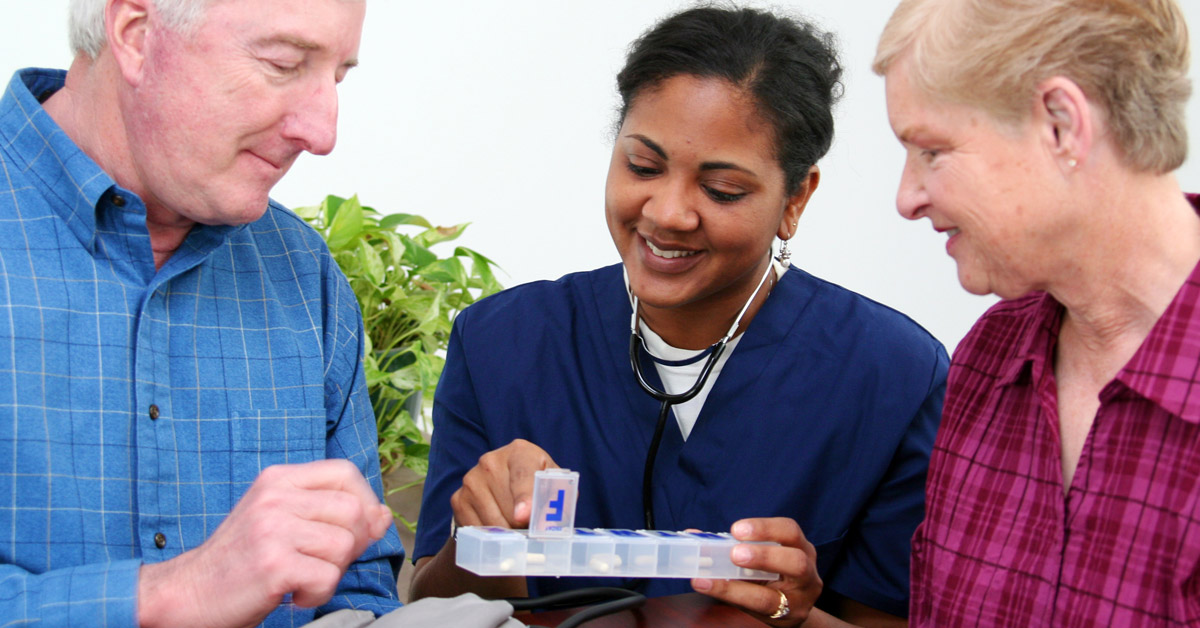
Medication Management in Home Health: Ensuring Safety and Efficiency
With the increasing trend towards home-based healthcare, proper medication management has become a crucial aspect of ensuring the well-being and safety of patients. Home health providers play a pivotal role in facilitating medication adherence and preventing adverse drug events. This article explores the importance of medication management in home health care settings and highlights key strategies for promoting safety, efficiency, and patient empowerment.
Importance of Medication Management in Home Health
- Adherence to Medication Regimen: Many patients receiving home health often have complex medication regimens involving multiple medications taken at different times. Medication management ensures that patients adhere to their prescribed schedules, preventing missed doses and minimizing the risk of complications.
- Preventing Medication Errors: Home health settings can present unique challenges in terms of medication administration. Proper management reduces the likelihood of errors such as incorrect dosages, drug interactions, or administering medications to the wrong patient.
- Minimizing Adverse Drug Events: The elderly and individuals with chronic illnesses are particularly vulnerable to adverse drug events. Medication management in home health involves careful monitoring for potential side effects, drug-drug interactions, and allergies, enabling timely intervention and prevention of complications.
Key Strategies for Medication Management in Home Health
- Comprehensive Medication Assessment: Home health care providers should conduct a thorough assessment of a patient’s medication history, including prescription medications, over-the-counter drugs, and herbal supplements. This evaluation should consider factors such as allergies, medical conditions, and drug interactions to develop an accurate medication profile.
- Medication Education and Counseling: Patient education plays a vital role in medication management. Home health providers should educate patients and their caregivers about the purpose, dosage, and potential side effects of each medication. Additionally, they should provide clear instructions on administration techniques, storage requirements, and proper disposal of unused medications.
- Medication Reconciliation: Regular reconciliation of medications is crucial in home health care settings, as patients may receive prescriptions from multiple healthcare providers. Home health providers should coordinate with the patient’s primary care physician and other specialists to ensure accurate medication lists and prevent duplications or interactions.
- Pill Organizers and Reminder Systems: Home health care providers can assist patients in organizing their medications using pill organizers, which separate doses for different times of the day. Additionally, reminder systems such as alarms, smartphone apps, or electronic medication dispensers can help patients adhere to their medication schedules and prevent missed doses.
- Regular Medication Reviews: Home health providers should periodically review the effectiveness of prescribed medications and their potential side effects. This evaluation allows for necessary adjustments in dosages, discontinuation of unnecessary medications, or addition of new medications when required.
- Collaboration and Communication: Effective communication between home health providers, patients, and healthcare professionals is vital for successful medication management. Clear and concise documentation of medication administration, side effects, and any concerns should be shared among all relevant parties, facilitating continuity of care.
Conclusion
Medication management plays a critical role in home health, ensuring patients receive their prescribed medications safely and effectively. By implementing comprehensive medication assessments, education, reconciliation, and tools like pill organizers and reminder systems, home health providers can enhance patient adherence, prevent medication errors, and minimize adverse drug events. By prioritizing communication and collaboration, healthcare professionals can empower patients and improve overall medication management in the home health care setting, promoting better health outcomes and quality of life.






